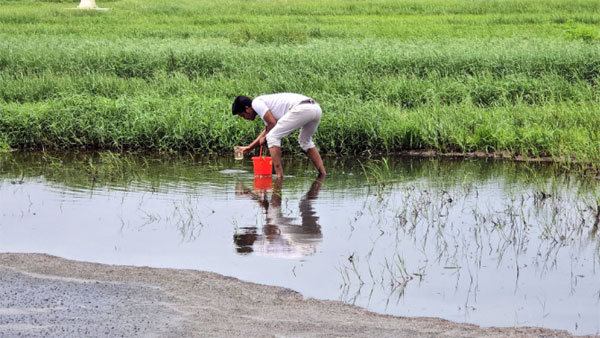Daijiworld Media Network - Mapusa
Mapusa, Aug 2: Environmental alarm bells are ringing in Baga and Calangute, where residents led by the Calangute Constituency Forum (CCF) have accused the Baga Sewage Treatment Plant (STP) of discharging untreated sewage into agricultural fields and the Baga River, triggering fears of ecological destruction and long-term damage to the region’s soil, water, and economy.
In response to the CCF’s formal complaint, a joint inspection was conducted on Friday by officials from the Goa State Pollution Control Board (GSPCB), Calangute Panchayat, and the local Health Department. While officials offered conflicting assessments, the community remains firm in its claims of environmental violations.

CCF President Premanand Diukar described the plant's operations as "grossly mismanaged," alleging that nearly 3 lakh litres of sewage transported daily by over 40 tankers from other parts of Goa is overwhelming the STP’s capacity. “The plant cannot handle this load. The excess sewage is being dumped directly into fields and the river,” he said.
Diukar claimed this has already caused crop destruction and irreversible damage to soil fertility, making once-productive land unsuitable for farming. He also warned of possible contamination of coastal waters near Baga Beach, which could endanger marine life, tourism, and the local economy.
In contrast, Health Officer Dr Roshan Nazareth, part of the inspection team, downplayed the severity of the issue. “All indicators were within acceptable limits during our visit,” he said, suggesting that rainwater runoff may have washed sludge into the fields, leading to "confusion."
To resolve the discrepancy, the GSPCB has collected water and soil samples from around the STP. Dr Nazareth assured that once lab results are available, “corrective action will be taken if necessary.”
Residents, however, remain skeptical and are calling for immediate intervention, transparency in testing, and a comprehensive review of the STP’s handling capacity. With growing concerns over environmental safety and livelihoods at stake, all eyes are now on the findings of the GSPCB’s report.